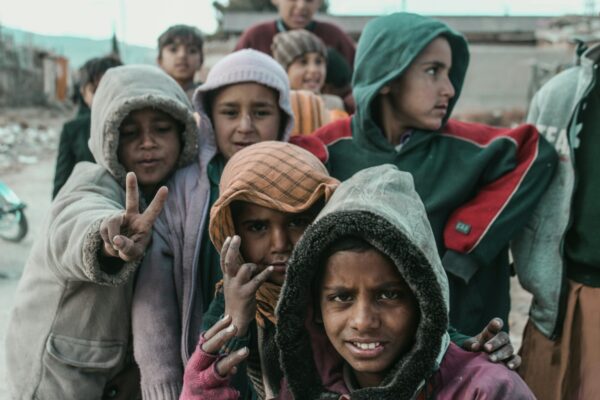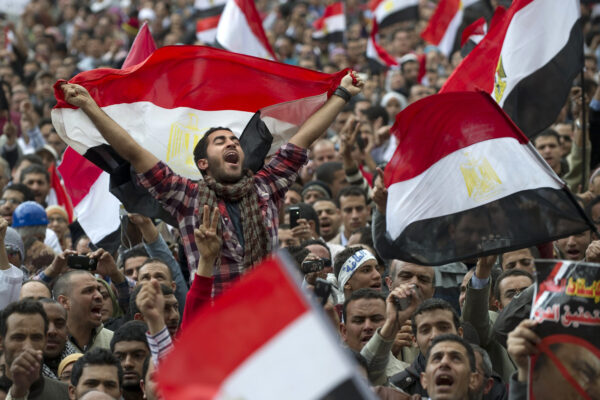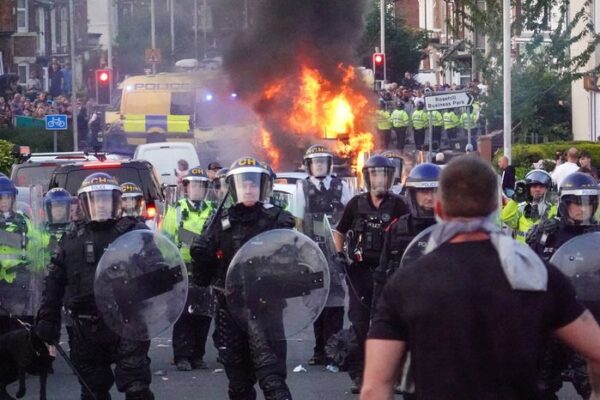Prince Harry – known as the cheeky prince – married American actress Meghan Markle on Saturday and their nuptials have gotten the subjects of Her Majesty’s kingdom very excited.
Prince Harry – known as the cheeky prince – married American actress Meghan Markle on Saturday and their nuptials have gotten the subjects of Her Majesty’s kingdom very excited.
Journalist Hafsa Kara-Mustapha argues that royal weddings are the Establishment’s way of diverting attention away from the real issues that afflict the nation.
Prince Harry – known as the cheeky prince – married American actress Meghan Markle on Saturday and their nuptials have gotten the subjects of Her Majesty’s kingdom very excited.
Despite the dire economic downturn that has seen Britons deprived of a pay rise in over a decade lavish royal weddings appear to put Britons in good spirits. These mass celebrations are an opportunity for people to experience the “feel good factor” associated with a fairy tale wedding.
Admittedly, what could be more Hollywood rom-com fairy tale than a B-list actress born into a working class family entering the most famous aristocratic household on the planet?
To give the marriage an added air of 21st century pizzazz Meghan is not only a commoner she’s also mixed race and will no doubt produce the first royal of mixed heritage in British history. Enough to allow the “SOAS chai tea drinking” graduates, so often prompt at denouncing the Establishment, the opportunity to celebrate the enlightened couple.
A difficult last few years
But the Establishment has on this occasion scored a point as the past few years have been difficult by all accounts. The rise of far-right parties coupled with terror attacks around the world have produced a sense of doom and gloom that is difficult to shake off.
As if terrorism, a failing economy, increased poverty weren’t enough, Britain was invited to partake in a merely symbolic referendum back in 2016 designed to put a once cumbersome topic to rest. Instead that referendum returned one of the most earth-shattering results for a country that simply hadn’t envisaged “that result.” Brexit, or the desire for Britain to exit the European Union, has turned the country on its head. The titanic task of leaving a block which Britain invested forty years into developing is proving profoundly difficult and its process has left the country facing ongoing uncertainty.

This prevailing sense of precariousness has plunged the country in an ongoing climate of gloom. The national spirit has to be lifted with a giant party where everyone is invited…to watch from the sidelines. What better way to achieve that than a real life Hollywood movie?
Royal weddings are a patriotic affair in a country that has a sensitive relationship with its flag as well as its sense of national pride often born from its imperial past. Royal weddings were for a long time equivalent to football victories, bringing the nation together in collective celebration.
Sadly football victories are difficult to secure, in particular for England teams; besides all countries bitterly fight for their share of the national high they procure. Instead, royals are thus invited to do their bit for the country and marry at a time of political convenience.
As the country attempts to heal itself from a difficult year which saw the Tory government call a snap and wholly unnecessary election followed by a devastating fire that left scores of working class people dead or homeless as well as the horrific attack in Manchester targeting a pop concert, 2017 is not one to be remembered fondly.
In a bid to erase that “anus horribilus” from the collective mind a big happy bash offers a soothing distraction.
The nation’s happy pill
Remember when David Cameron’s austerity measures began to bite and the first food banks made their sinister appearance in this industrialised nation?
Remember when students took to the streets in their thousands to protest against newly introduced tuition fees and were consequently kettled for several hours by London police in below zero temperatures?
Now remember that this was the time William, heir to the British throne, announced his engagement to his then on-and-off girlfriend Kate Middleton.
Suddenly all the woes in the world appeared insignificant when faced with the glitter of a carriage drawn bride to the sound of bugles and the crowd’s cheers.

Prince Charles announced his hasty engagement with a fresh-faced aristocrat, Lady Diana Spencer, after the country had suffered from a bitter winter of discontent. Power shortages and increased strikes as well as a crumbling pound left Britain ending the 70’s on an all time low.
The buzz felt from the Queen’s Silver Jubilee had by 1980 worn off and it became imperative for the nation to re-focus their now sombre mood on more festive considerations. The Brixton riots of April 1981 would soon be eclipsed by the sight of the virginal Diana walking up the aisle at St Paul’s alongside her proud father bashfully saying those magical words to her dashing prince.
And while the Queen herself was said to have set her eyes on the terribly handsome Greek Prince Phillip at a very young age it was only in 1947 when the effects of the war and the ongoing food rationing would begin to impact more and more families, that the two lovebirds tied the knot. The country was invited to bake celebratory cakes and decorate the streets for the upcoming wedding thus allowing the people to grin and bear the pain of rations for another decade.
There is no doubt many royals marry for love and all the lovely things we are told are essential to a happy union but often centuries-old institutions such as monarchies know full well that their schedule has to abide by the demands of “queen and country.”
Royal weddings are regularly on the cards but when the nation’s state of health is dependent on it, speeding up the process ends up being just what the doctor ordered.
This was originally published here on 5Pillars.





